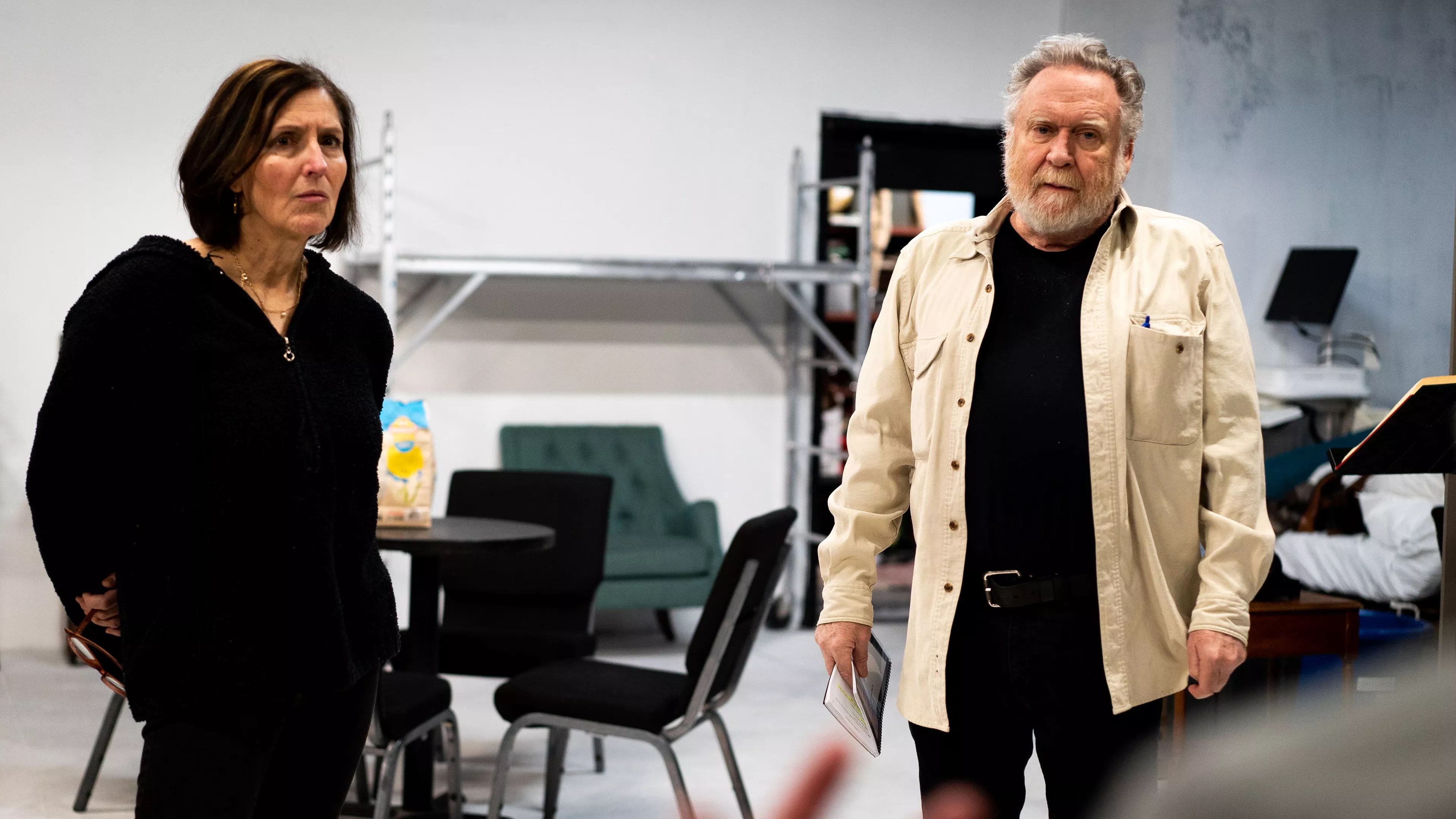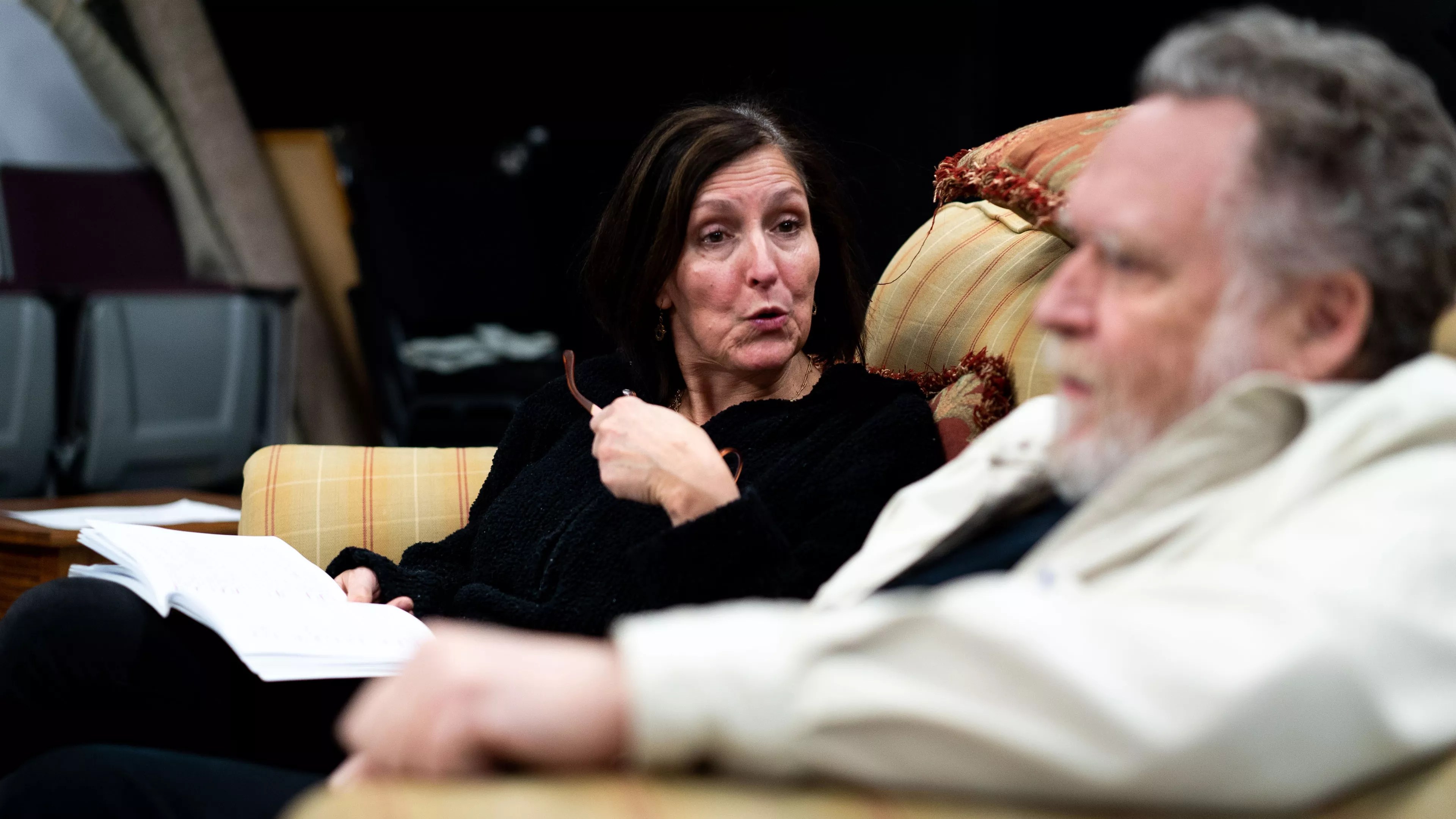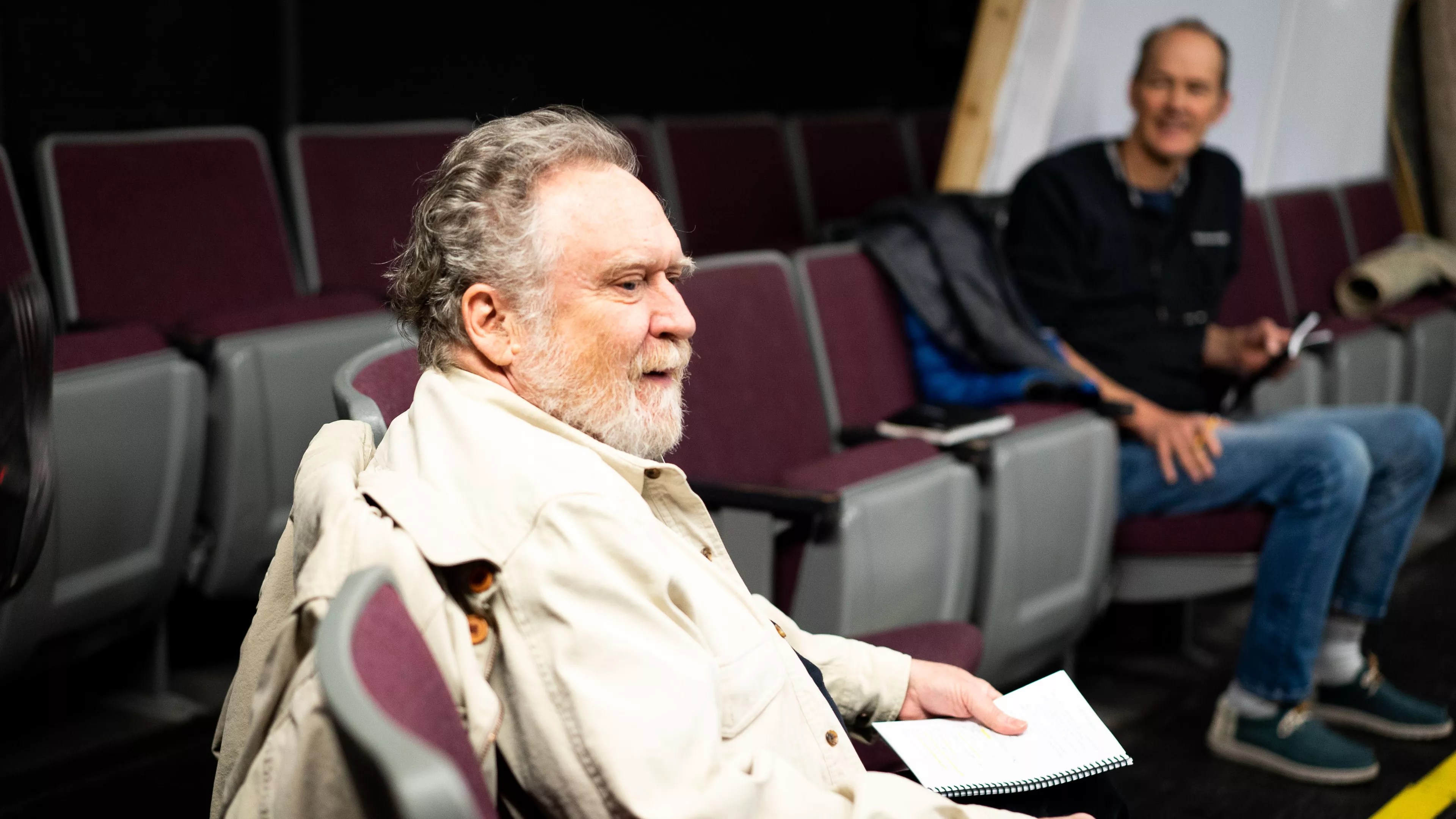
Courtesy of Benchmark Theatre

Audio By Carbonatix
While some theater companies use their art to distract from the world, Benchmark Theatre has been dedicated to telling stories that spotlight and grapple with contemporary issues since 2016.
“Benchmark has always taken a tremendous amount of pride in reflecting what’s happening in the world on stage,” says Marc Stith, strategic and marketing director for Benchmark and director of A Great Wilderness, Samuel D. Hunter’s play that kicks off the sixth season. “We never shy away from issues that are impacting the community; we lean into them.”
For its 2023 season, each play centers on “casualties,” serving as a theatrical response to a community affected by a disaster. “Casualties for us did not have to be literal; they could be casualties of war, love or family drama,” says Haley Johnson, Benchmark’s executive director. “A Great Wilderness spoke to us on that level, and after the horrific Club Q shooting in November and continued attacks against members of the LGBTQ+ community, we felt it was very important to find a piece that was reflective of the trauma and violence that LGBTQ+ people experience.”
Hunter’s profile has risen substantially since the release of his 2022 two-time Academy Award-winning film The Whale, directed by Darren Aronofsky and based on his 2012 play of the same name, which premiered at the Denver Center Theatre Company’s New Play Summit. But the writer’s newfound popularity had nothing to do with the play’s selection.
“A Great Wilderness was one of the scripts we were considering for our 2023 season prior to the Oscar buzz The Whale received,” says Stith. “We were attracted to the script initially because of its themes, so it just ended up being a happy accident that so many people are interested in Samuel Hunter’s work right now.”

Christine Kahane works on a moment in A Great Wilderness with Chris Kendall.
Courtesy of Benchmark Theatre
The play, which was originally commissioned and produced by Seattle Repertory Theater in 2014, follows a mild-mannered Christian named Walt who is the leader of a retreat in the countryside of Idaho that seeks to “cure” gay teens of their homosexuality.
As he prepares to retire, his final client, Daniel – a sixteen-year-old boy who was sent to the facility after his father caught him looking at a gay website – disappears from the center, running into the wilderness. Walt tries to hold on to his faith as things get worse, but he finds that his morals don’t give him the same sense of security that they used to.
When Johnson first read the play, she was touched by the humanity of its characters, despite their inhuman actions. “It initially spoke to me on a performance level,” says Johnson. “I thought it would be an exciting challenge for actors to perform the quiet trauma that the characters are going through.
“While I trust the audience will understand the themes, their immediate reaction will probably be that [Walt] is a terrible character for what he does to young men,” she continues. “I like stories that present complex characters. Maybe he’s this terrible monster, or maybe he just doesn’t understand because his faith tells him what he is doing is best. Rather than beat the audience over the head with prescriptive judgments of ‘good’ or ‘bad,’ we just present the story and let people make their own decisions about what is right or wrong.”
And although the play’s action centers around the subject of conversion therapy, Stith maintains that its themes are much larger than that. “The play is about reconciliation, as Walt is reflecting on his own choices as well as the mistakes he has made in past relationships,” says Stith. “A major theme of the play is about what happens when you take stock of your actions toward the end of your life and consider what you have put out into the world, along with the conflict between religion and sexuality.”

Mark Collins makes notes in his script during a rehearsal of A Great Wilderness, with Chris Kendall and Christine Kahane in the background.
Courtesy of Benchmark Theatre
While preparing for the production, Stith reviewed interviews with Hunter to get a sense of his style and see what influenced the work. During his research, he learned that Hunter grew up in Moscow, Idaho, and drew from his experience attending a Christian school in that area as material for his plays.
“I’ve always been very deeply interested in religion, even before actually going to this religious school,” said Hunter in a 2012 interview with Marcia Franklin on Idaho Public Television. “There’s something about people negotiating their worldviews with the rest of their lives that’s always been really interesting to me. I think if there’s one common thread to probably every single one of my plays, it’s that somebody – it could be religion or it could be something else – is trying to reconcile something they hold very deeply with the rest of the world.”
Hunter also mentioned that his lived experience growing up as a gay man in this environment colors the way he writes his characters. “Growing up [being gay] was a big thing that I was negotiating with the rest of the world,” he said. “Especially being in a Christian school, I was negotiating this deeply fundamental part of myself with an environment that said that was false – that [being gay] was something to be shed like a bad habit.”

Director Marc Stith listens intently during a rehearsal for A Great Wilderness while Mark Collins sits on the couch.
Courtesy of Benchmark Theatre
When the Benchmark team was originally discussing the play, Stith thought that the subject of conversion therapy might not be the hot-button topic that it once was; however, after doing more research, he was horrified to learn that it was still practiced throughout large parts of the country.
According to the Movement Advancement Project, a nonprofit dedicated to creating an inclusive and equitable America, twenty states and D.C. have laws that ban conversion therapy for minors; six states and one territory partially ban conversion therapy for minors; three states have a federal judicial circuit with a preliminary injunction currently preventing enforcement of conversion therapy bans; and 21 states and four territories have no law or policy prohibiting the practice.
The Williams Institute estimates that more than 698,000 adults have received conversion therapy at some point in their lives, and reports that more than 16,000 LGBTQ+ youth will receive or are receiving conversion therapy in states that do not currently ban the practice.
“I thought originally that conversion therapy – which, by the way, I have to say is largely discredited and identified as not only invalid, but harmful by almost every major medical and mental health association in the country – had died out,” says Stith. “When Benchmark started talking about it, I wasn’t sure how much of a stance we would be taking, and yet it persists in many states, which is alarming.”
Stith had long conversations with cast members Chris Kendall, Christine Kahane, Mark Collins, Latifah Johnson, Corey Exline and Dante J. Finley about the practice to make sure they understood its harmful history.

Chris Kendall sits in the audience of Benchmark Theatre near Mark Collins during a rehearsal for A Great Wilderness.
Courtesy of Benchmark Theatre
“Everyone in the cast had a story to share about this subject,” says Stith. “I appreciate how much they invested themselves in this work and their willingness to be true to the script. Painting any of these characters with a broad stroke would be a disservice to the work, the actors and, really, the audience.”
The style of A Great Wilderness is modified realism, which Stith says allows the design team to incorporate some technical elements that go beyond a completely naturalistic effect.
“We played with space between characters and tried to create this sense of the outside world encroaching on the world of the cabin,” says Stith. “We have a top-notch production team that has a lot more to do than just turn the lights on or off. There are effects, like a car headlight shining through a window, and tons of opportunities within the script for our designers to be a little bit more conceptual in their approach.”
When audiences attend A Great Wilderness, Stith recommends that they refrain from judging the characters until the end of the play.
“This play is probably not for overly binary thinkers,” says Stith. “Some people try to see the world as good or bad, gay or straight, male or female – but the bulk of real life lies in between two extremes. I hope the audience recognizes the complexity of these characters and oscillates between sympathy and resentment for them. I want them to recognize the ability to feel two feelings at once and take that home with them.”
A Great Wilderness opens April 14 and runs through May 13, Benchmark Theatre, 1560 Teller Street, Lakewood. Find tickets, times and more information at benchmarktheatre.com.